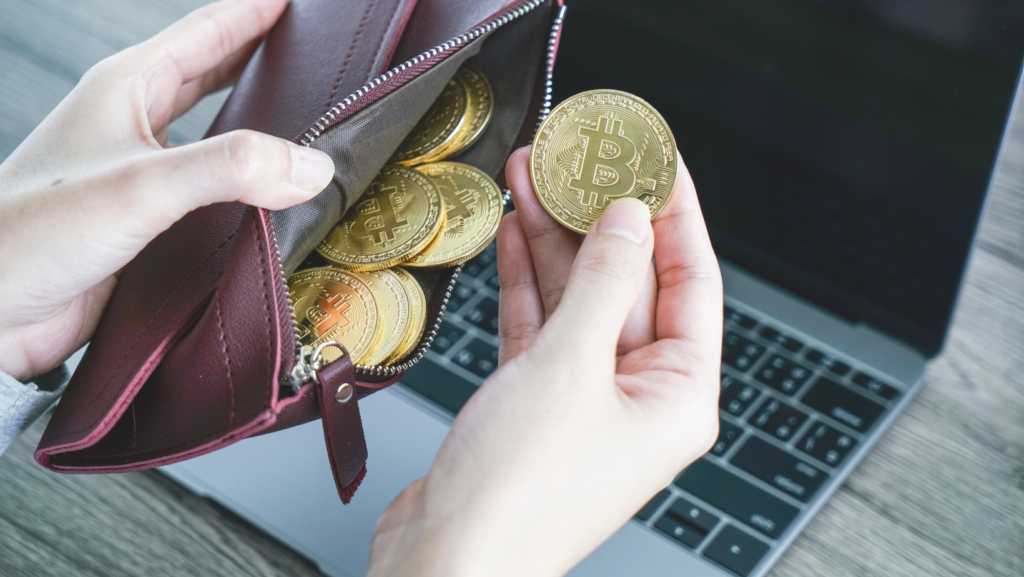Cryptocurrency
New cryptocurrencies are even riskier than the larger, more established ones such as Bitcoin and Ethereum. Traders looking to profit on new cryptocurrencies should keep their investments to a small portion of their portfolio and consider spreading their bets out to reduce the overall risk.< https://sonabh.org/ /p>
TThe data at CoinMarketCap updates every few seconds, which means that it is possible to check in on the value of your investments and assets at any time and from anywhere in the world. We look forward to seeing you regularly!
That’s less of a risk for Bitcoin and Ethereum, for example, because they’re the two largest cryptocurrencies and they’ve already attracted lots of interest and have traders’ confidence. In addition, both Bitcoin and Ethereum have now been approved to be included in exchange-traded funds (ETFs), which can keep the money flowing into them, so traders will continue to herd around them.
Cryptocurrency wallets
The investing information provided on this page is for educational purposes only. NerdWallet, Inc. does not offer advisory or brokerage services, nor does it recommend or advise investors to buy or sell particular stocks, securities or other investments.

The investing information provided on this page is for educational purposes only. NerdWallet, Inc. does not offer advisory or brokerage services, nor does it recommend or advise investors to buy or sell particular stocks, securities or other investments.
The private key signs transactions and allows you to send and receive crypto. It’s crucial to keep your private keys secure and secret. If anyone has access to them, they will also have access to any crypto assets associated with those keys.
Step 1: Go offline. To ensure maximum security, it is recommended that you go offline when creating a paper wallet. This reduces the risk of online attacks and ensures that your private key is generated offline. You can unplug your internet cord or disable the internet connection, but you might need to remain connected to your home network to print.
Step 4: Transfer your assets. Once you have created your software crypto wallet and set up your account, the next step is to transfer assets into it. There are several ways to transfer assets, including depositing funds from a bank account, exchanging cryptocurrencies, or receiving them from another wallet. Most software wallets support multiple cryptocurrencies, allowing you to transfer various assets. To fund your wallet, you will need to obtain the wallet address and use it to send the assets to it. Some wallets also support QR codes that can be scanned to facilitate the transfer.
It is a physically printed QR coded form wallet. Some wallets allow downloading the code to generate new addresses offline. They are not prone to hacks, but the number of flaws has made them dangerous. A major flaw is not being able to send partial funds. Thus, it can’t be reused. They used to be very popular for cold storage, but not after hardware wallets came onto the scene. All in all, if stringent security precautions are taken, then paper wallets can be set up.
Bitcoin cryptocurrency price
Alternatively, you can store your BTC in an external BTC wallet. There are hot and cold wallet solutions available in the market with different pros and cons, so you can explore the options to see which one suits you best.
For those seeking the latest crypto news, we make sure to provide daily and weekly articles covering the most important happenings in the market, ensuring that you’re always informed of breaking updates and changes.
When the cryptocurrency was launched at the beginning of 2009, as Satoshi Nakamoto mined the bitcoin genesis block (the first-ever block on the Bitcoin blockchain), 50 BTC entered circulation at a price of $0.00.
Bitcoin is, in many regards, almost synonymous with cryptocurrency, which means that you can buy Bitcoin on virtually every crypto exchange — both for fiat money and other cryptocurrencies. Some of the main markets where BTC trading is available are:
China cryptocurrency
With the common prosperity programme, China aims to curb capital flight and encourage the domestic circulation of people’s wealth. China’s attempts at wealth redistribution would be far more difficult to accomplish if the rich circumvented China’s already strict capital controls through offshore cryptocurrency exchanges and acquired overseas assets.
Futures exchanges allow traders to buy and sell contracts that speculate on the future price of cryptocurrencies. These platforms are ideal for advanced traders looking to leverage their positions and hedge against price fluctuations in the crypto market.
Despite local legal clarifications, China’s regulatory stance on the broader crypto industry remains restrictive. Experts like Zhu Guangyao, China’s former finance vice-minister, have called for opening the market to ensure China remains competitive in the global digital economy.
2.2 The 2013 government notice also barred any financial or payment institutions from partaking in the trade of Bitcoin, while also restricting any insurance services working with any businesses Bitcoin-related.
And despite Beijing’s anti-crypto stance, it remains technically legal for Chinese citizens to hold crypto. Some 78 million people in China—equivalent to 5.5% of the total population—still owned a cryptocurrency as of mid-May 2023, according to crypto payment gateway Triple-A. But this lags the 18.73% share in Vietnam, along with 13.7% in the US and 7.1% in India. These numbers can vary depending on the source, but the general distribution remains consistent across each outlet.

